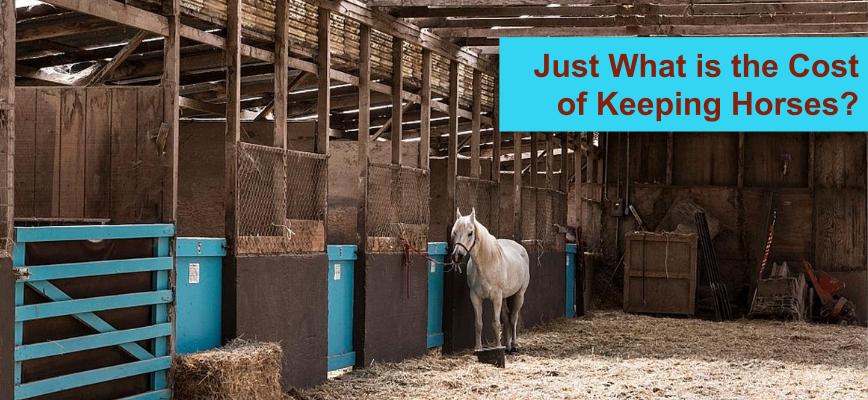Any serious hobby can cost you a small fortune, but few are quite as money intensive a owning a horse. Now, I know it is probably your little girl’s dream to own her own pony or horse, but beware the annual cost of keeping horses. It’s not just the finances either, being a equine owner takes a lot of dedication and commitment.
Have a look at this list of costs associated with keeping horses before show jumping into the equestrian world.
Where to house your horse
The most cost-effective way of keeping your horse is of course on your own land. If you don’t have land available at home you will need to look for alternative housing for your horse, either a field for rent or a livery yard.
You may find that a local farmer will have fields available to rent. These are generally reasonably priced, usually at around £10 per week, although facilities may be lacking and you may be responsible for the mucking out of the field.
A livery yard is the most common option amoung horse owners as they have many more facilities although prices can range anywhere from £20 to £150 per week depending on the level of service you opt for.
Feeding and Hay
If your horse is kept on grass then hay for bale feeders will only be required in the winter months when grass is scarce. The size and type of horse and pony will determine the amount that is required. Hay for bale feeders will be required for around half of the year, although the severity of the weather will dictate the higher levels required. Weekly the costs could vary from £5 to £10 in the cruelest of winters.
Hay will be required for your horse all year round if it is kept in a stable to counteract the lack of grass. It will cost between £10 and £20 per week to keep the stable bale feeders replenished as well as providing straw and shavings for bedding.
Vet’s Fees And Insurance
A horse or pony requires yearly vaccinations against Influenza and Tetanus and this can be expected to cost in the region of £35 a year for the vaccination plus around £35 call out charge from the vet.
Vet’s fees in cases of illness or accident can be costly, and rather than risk having to pay out several hundred or thousand pounds for an incident many owners prefer to insure their horse against such fees. The cost of insurance to cover vets fees will vary depending on the type of cover taken and the value of the horse or pony but should be expected to cost in the region £20-£40 per month or more.
Health
Farrier
Your horse will need to see a farrier for trimming and shoes. These visits are a necessity and will cost £25-30 for trimming and £50-£85 shoeing per visit.
Dentist
Just like us adults your four legged friend will need to see a dentist once a year to make sure that there are no sharp edges or other dental issues that may cause problems or discomfort to you horse. Dentist charges are £50-£70 per visit.
Worming
Regardless of whether you horse or pony is stabled or at grass they need to be wormed regularly. The frequency of a wormer is dependent on the type or wormer used and which worms are the target. Each visit will cost around £10-£15.
Extras
Aside from all that listed above there are always unexpected costs that can arise throughout the year such as illness or injury that may require extra vets visits. There are also additional things to buy too, shampoos, medical products for minor cuts and grazes. Therefore it is a very good idea to factor in an extra £1000 per annum to cover the unexpected.
I will leave you to do the sums.
Do you own horse? Are there any costs that have taken you by surprise? Tell us in the comments.

Be the first to comment on "The real cost of keeping horses"